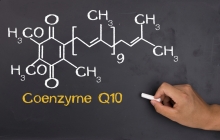Agreement to accelerate development of potential treatments for rare, endocrine, metabolic, and neurological conditions associated with primary and secondary ubiquinone deficiencies which belong to the wider class of mitochondrial diseases | An estimated 1 in 5,000 adults worldwide has a mitochondrial disease | Clarus to pay McGill $350,000 upfront and up to $10.5 million in potential development and regulatory milestones
Category:
Published on: 16 Sep 2021

The popular dietary supplement ubiquinone, also known as Coenzyme Q10, is widely believed to function as an antioxidant, protecting cells against damage from free radicals. But a new study by scientists at McGill University finds that ubiquinone is not a crucial antioxidant -- and that consuming it is unlikely to provide any benefit.
Category:
Published on: 6 Mar 2015
